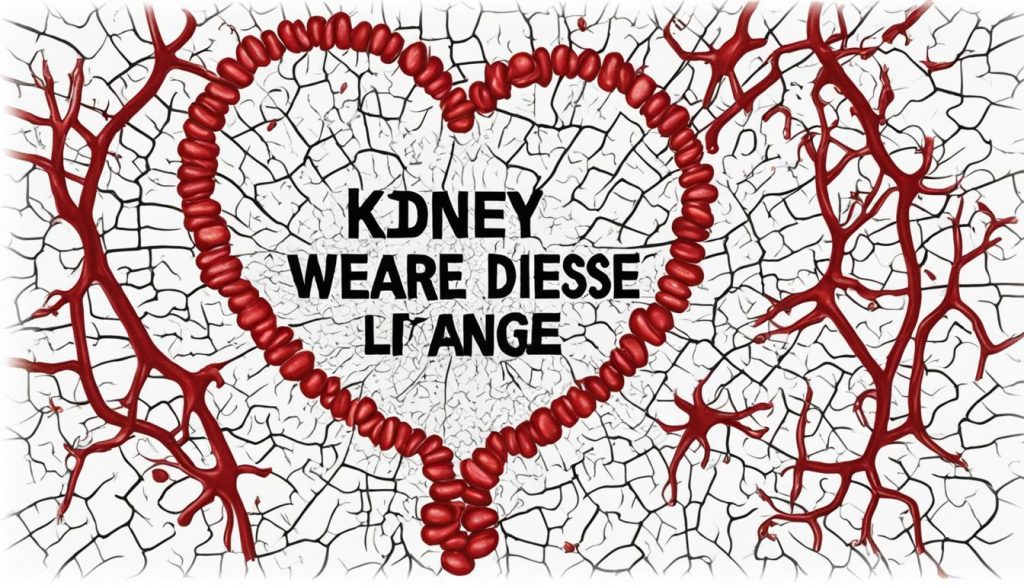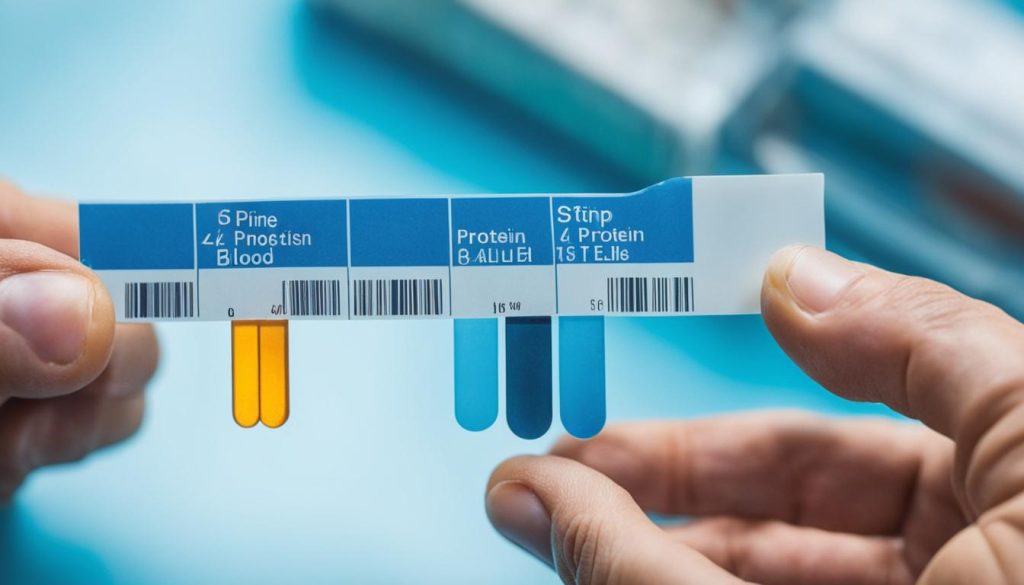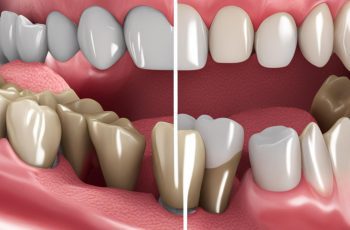As someone who values their health and well-being, it’s crucial to be aware of the early signs that your kidneys may be failing. Kidney disease affects a significant number of individuals, with over 37 million American adults living with this condition. Surprisingly, many people are unaware of their kidney health until it reaches advanced stages. By recognizing the red flags and seeking timely medical attention, you can potentially slow down the progression of kidney disease and protect your overall health.
So, what are the signs your kidneys are failing or deteriorating? Pay attention to symptoms such as fatigue, trouble sleeping, dry and itchy skin, frequent urination, blood in the urine, foamy urine, puffiness around the eyes, swelling in the ankles and feet, poor appetite, and muscle cramping. If you experience any of these signs, it’s important to get tested for kidney disease, especially if you fall into the high-risk category.
High blood pressure, diabetes, a family history of kidney failure, and being over the age of 60 are common risk factors for kidney disease. If you have any of these risk factors, it’s essential to be proactive and prioritize your kidney health.
Discover the Signs Your Kidneys are Failing
- Recognizing the early signs of kidney failure can lead to prompt diagnosis and treatment.
- Common signs of kidney disease include fatigue, trouble sleeping, dry and itchy skin, frequent urination, blood in the urine, foamy urine, puffiness around the eyes, swelling in the ankles and feet, poor appetite, and muscle cramping.
- If you have high blood pressure, diabetes, a family history of kidney failure, or are over the age of 60, you may be at a higher risk for kidney disease.
- Getting tested for kidney disease is crucial, especially if you experience any of the symptoms mentioned above.
- Early intervention can help slow down the progression of kidney disease and improve your overall health and well-being.
Recognizing Early Signs of Kidney Failure
Early signs of kidney failure are important to recognize in order to seek prompt medical attention and manage the progression of chronic kidney disease. While kidney disease often presents with minimal or no symptoms in its early stages, there are several signs that may indicate deteriorating kidney health.
Fatigue, difficulty concentrating, and trouble sleeping are early signs of kidney failure. As kidney function declines, it can lead to anemia, which causes weakness and fatigue. These symptoms can impact daily activities and overall quality of life.
Dry and itchy skin is another common sign of kidney damage. When the kidneys are unable to properly remove waste and toxins from the body, it can result in skin problems. Increased frequency of urination, especially at night, can also be an early indicator of kidney dysfunction.
Observing blood in the urine or foamy urine should be taken seriously, as it can be a sign of kidney damage. Additionally, puffiness around the eyes and swelling in the ankles and feet may indicate fluid retention due to kidney dysfunction.
A poor appetite and muscle cramping can also be indicators of deteriorating kidney health. These symptoms may be a result of the body’s increased waste buildup and imbalanced electrolytes.
It is important to note that these early signs of kidney failure may not be specific to kidney disease alone. They can also be associated with other health conditions. Therefore, it is essential to consult a healthcare professional for an accurate diagnosis if you experience any of these symptoms.
The Connection Between Kidney Disease and Other Health Issues
Kidney disease is not just isolated to the kidneys. It can have a significant impact on various other health issues and bodily functions. Understanding the connection between kidney disease and these conditions is crucial for holistic healthcare management.

Sleep Apnea and Chronic Kidney Disease
Sleep apnea, characterized by interrupted breathing during sleep, has been found to contribute to the development and progression of chronic kidney disease. The intermittent drops in oxygen levels experienced by individuals with sleep apnea can lead to an increase in blood pressure and inflammation, both of which can further damage the kidneys.
Obesity and Kidney Dysfunction
Obesity is a significant risk factor for the development of kidney disease. Excess weight puts additional strain on the kidneys, leading to metabolic changes, increased blood pressure, and insulin resistance. These factors can impair kidney function and contribute to the development of kidney disease.
Heart Disease and Kidney Health
The connection between kidney disease and heart disease is bidirectional. Individuals with kidney disease are at a higher risk of developing heart disease due to shared risk factors such as high blood pressure and diabetes. On the other hand, heart disease can also lead to kidney damage by affecting the blood vessels and reducing blood flow to the kidneys.
Urinary Tract Problems and Kidney Damage
Urinary tract problems such as kidney stones, urinary tract infections, and obstruction can obstruct the flow of urine and cause damage to the kidneys. These issues need to be addressed promptly to prevent further complications and preserve kidney function.
Overlapping Symptoms
Symptoms of kidney disease can often overlap with symptoms of other health conditions, making it difficult to identify the primary cause. Nausea and vomiting, muscle cramps, loss of appetite, shortness of breath, trouble sleeping, and changes in urinary patterns can all indicate kidney dysfunction but may also be attributed to other disorders. Consulting a healthcare professional is essential for an accurate diagnosis and appropriate treatment plan.
Diagnosis and Treatment of Kidney Disease
Routine blood work is a valuable tool for detecting kidney disease in its early stages. However, additional tests may be necessary to confirm the diagnosis and determine the underlying cause. These tests can include urine analysis, imaging tests such as ultrasound or CT scans, and kidney biopsies.
Urine analysis allows healthcare professionals to examine the urine for any abnormalities, such as the presence of blood or protein. Imaging tests provide detailed images of the kidneys, allowing doctors to assess their size, shape, and overall condition. Kidney biopsies involve the removal of a small tissue sample from the kidneys, which is then examined under a microscope to identify any signs of damage or disease.
Once a diagnosis is confirmed, treatment for kidney disease focuses on managing the underlying cause and reducing complications. Lifestyle changes are often recommended, such as maintaining a healthy diet, exercising regularly, and quitting smoking.

Medications may be prescribed to help control blood pressure and manage anemia, which is a common complication of kidney disease. A low-protein diet may also be advised to reduce the workload on the kidneys.
In severe cases, when kidney function becomes significantly impaired, dialysis or kidney transplantation may be necessary. Dialysis is a procedure that filters waste and excess fluid from the blood when the kidneys can no longer perform this function. Kidney transplantation involves surgically replacing a diseased kidney with a healthy one from a donor.
It’s important to remember that early detection and treatment of kidney disease can help slow its progression and improve overall outcomes. If you’re experiencing any symptoms of kidney disease, such as changes in urinary patterns, swelling, or fatigue, it’s crucial to consult with a healthcare professional for a thorough evaluation and appropriate management.
Conclusion
Recognizing the signs of kidney failure early on is crucial for prompt diagnosis and treatment. If you experience symptoms such as fatigue, trouble sleeping, dry and itchy skin, frequent urination, blood in the urine, foamy urine, puffiness around the eyes, ankle and feet swelling, poor appetite, or muscle cramping, it’s essential to seek medical attention.
If you have risk factors such as high blood pressure, diabetes, or a family history of kidney disease, the urgency becomes even greater. Don’t ignore these signs and symptoms, as they could indicate a decline in kidney function. Timely intervention can help slow disease progression and improve your overall health and well-being.
Remember, kidney disease affects millions of adults in the United States, and many may be unaware of their condition until the late stages. By being vigilant about potential symptoms, you can catch kidney disease early and take the necessary steps to manage and treat it effectively. Take care of your kidneys, and they will take care of you.
FAQ
What are some early warnings signs that your kidneys are failing?
Some early warning signs of kidney failure include fatigue, difficulty concentrating, trouble sleeping, dry and itchy skin, increased frequency of urination (especially at night), blood in the urine, foamy urine, puffiness around the eyes, swelling in the ankles and feet, poor appetite, and muscle cramping.
What are the common signs of kidney disease?
Common signs of kidney disease include fatigue, trouble sleeping, dry and itchy skin, frequent urination, blood in the urine, foamy urine, puffiness around the eyes, swelling in the ankles and feet, poor appetite, and muscle cramping.
Are there any other health issues that can be linked to kidney disease?
Yes, kidney disease can be linked to other health issues such as sleep apnea, obesity, heart disease, and urinary tract problems. Sleep apnea, in particular, can contribute to the development of chronic kidney disease.
How can kidney disease be diagnosed?
Routine blood work can help detect kidney disease in its early stages. Other tests such as urine analysis, imaging tests (ultrasound or CT scans), and kidney biopsies may be performed to diagnose and determine the underlying cause of kidney disease.
What are the treatment options for kidney disease?
Treatment for kidney disease focuses on managing the underlying cause and reducing complications. This may involve lifestyle changes, medications for blood pressure and anemia, and a low-protein diet. In severe cases, dialysis or kidney transplantation may be necessary to replace lost kidney function.




